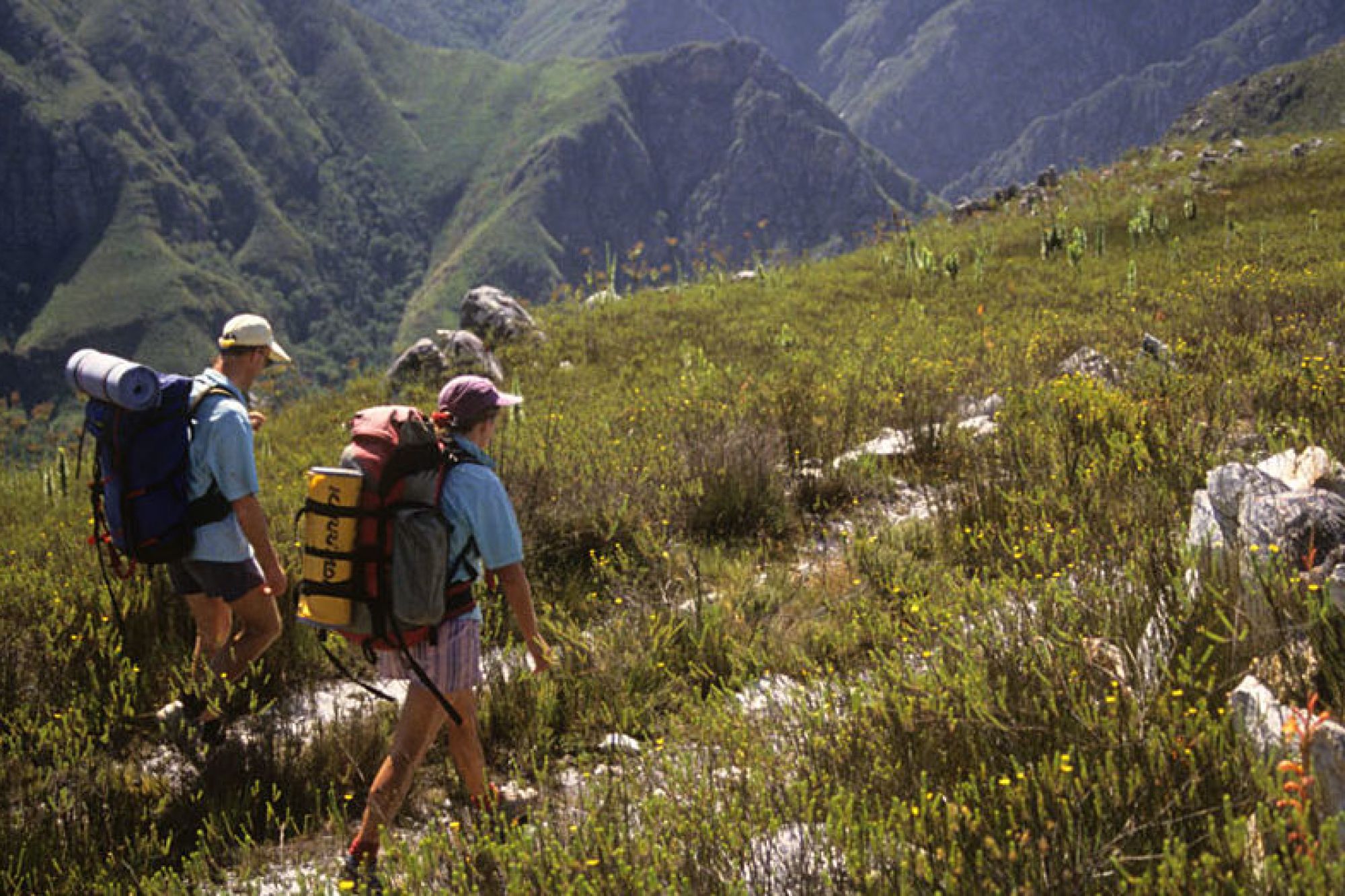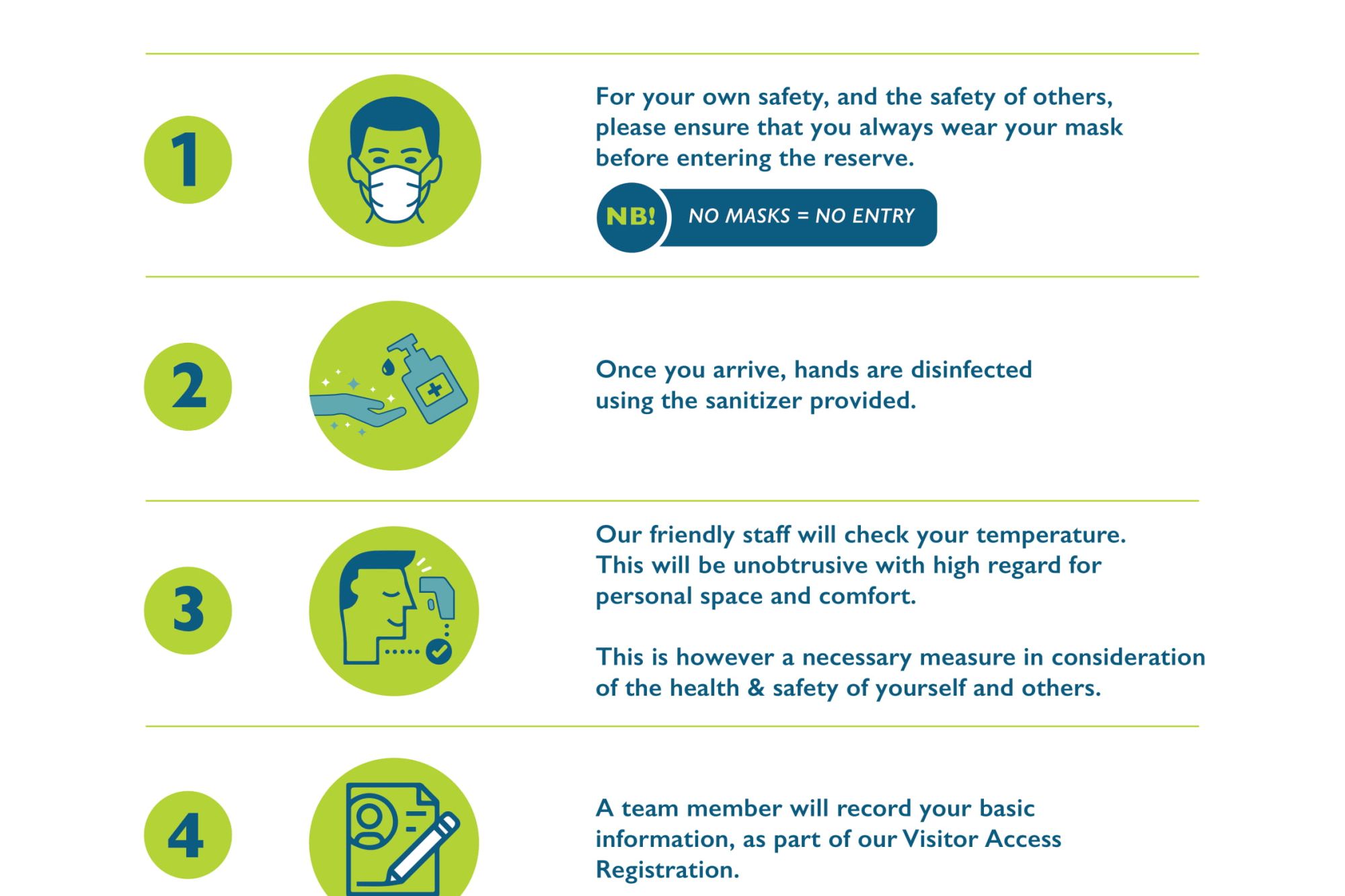
CapeNature announces phased reopening of reserves
CapeNature is delighted to announce the phased reopening of its reserves across the Western Cape following the easing of the national lockdown regulations to Alert Level 3 to allow hiking and fishing activity.
Mr. Sheraaz Ismail, acting CapeNature Chief Executive Officer, confirmed that, “Staff are working diligently to ensure that the respective reserves are compliant and ready to welcome visitors to our reserves. All regulations relating to social distancing, health protocols, movement and the prohibition of groups and gatherings will apply accordingly.”
For a full list of reserves and trails that will be open to the public from Friday, 12 June 2020, click here (opens in new tab). Please take into consideration the daily limit allowed on each trail. Once capacity is reached no more hiking permits may be issued for that trail on that day. The opening of trails will be subject to weather conditions.

All visitors entering at a controlled CapeNature reserve entrance gate will be subjected to a screening process and various guidelines will apply, including the mandatory completion of a 4-step check-in process. Visitors will need to comply with the following prior to being allowed entry:
- Wearing of face masks.
- Disinfection of hands with sanitiser provided.
- Scanning of body temperature. This will be unobtrusive with high regard for personal space and comfort.
- Recording of visitor information as part of the Visitor Access Registration.
For those reserves where there is no controlled entrance gate access, hikers will need to ensure that social distancing and health protocols are followed. No organised groups will be allowed access to the trails, visitors are encouraged to hike in pairs.
No picnicking, overnight hiking, camping or overnight stays will be allowed. All fishing, including recreational fishing, will be permitted with the exception of charter fishing. Anglers and hikers must ensure that they have a valid permit and any member of the public found without a hiking or fishing permit, will be issued with a fine.
In order to minimize contact engagement and risk, no hiking permit will be on sale at the Reserve gate, until further notice. All visitors will be encouraged to pre-purchase their hiking permit online, by visiting www.capenature.co.za or contacting the CapeNature Contact Centre on 087 087 8250 (074 936 2139 or 062 318 4987 on weekends). Pre-purchased hiking permit sales will close at 10h00, for any purchases made for that particular day. In order to manage capacity and record keeping Wild Card holders will also need to register for a hiking permit online prior to arriving at the reserve.
- To book your hiking permit online, go here and check for your preferred trail under the reserve information.
- To read more on booking your fishing permit, read more here.
Please be aware that visitor limits may apply at selected reserves. A list of Frequently Asked Questions (FAQs) can be found here (opens in new tab).
Bookings for tourism facilities
Visitor safety is CapeNature’s key priority and the COVID pandemic has therefore led to a fundamental shift in how we do things. Permits will not be sold at the CapeNature entrance gates. The entity will continue to only sell permits online and via the Contact Centre, under Alert Level 3 conditions. Wild card members will need to register a permit by emailing reservation.alert@capenature.co.za or by contacting us on 087 087 8250 (074 936 2139 or 062 318 4987 on weekends). No fees will apply to valid Wild Card holders. Bookings for the educational eco-venues and overnight accommodation bookings are still closed but the CapeNature online booking portal is open for future bookings.
CapeNature’s full COVID-19 Booking terms and conditions is available on the CapeNature website here (opens in new tab).

Related News
How can I assist you today?
How can I assist you today?



